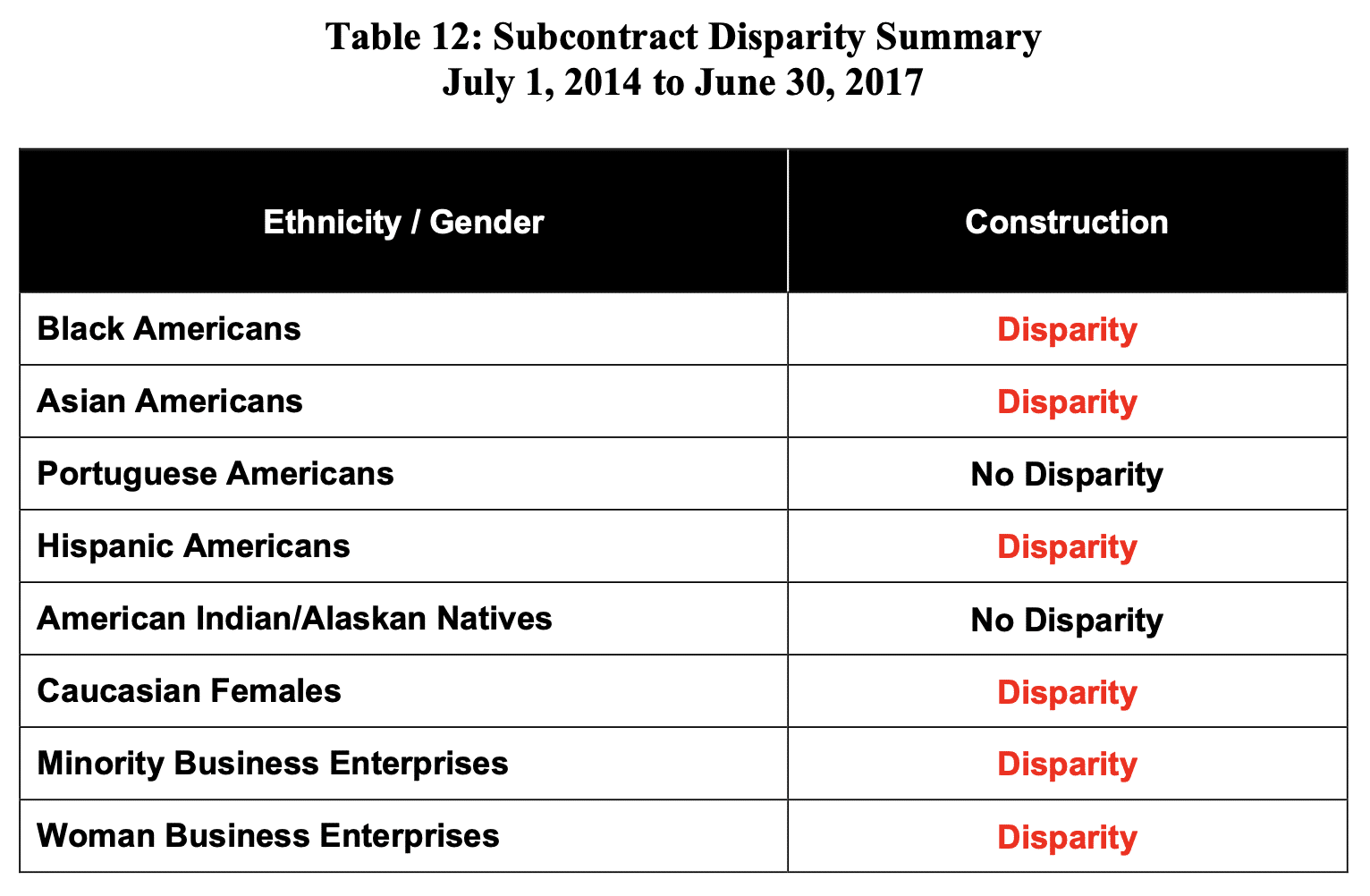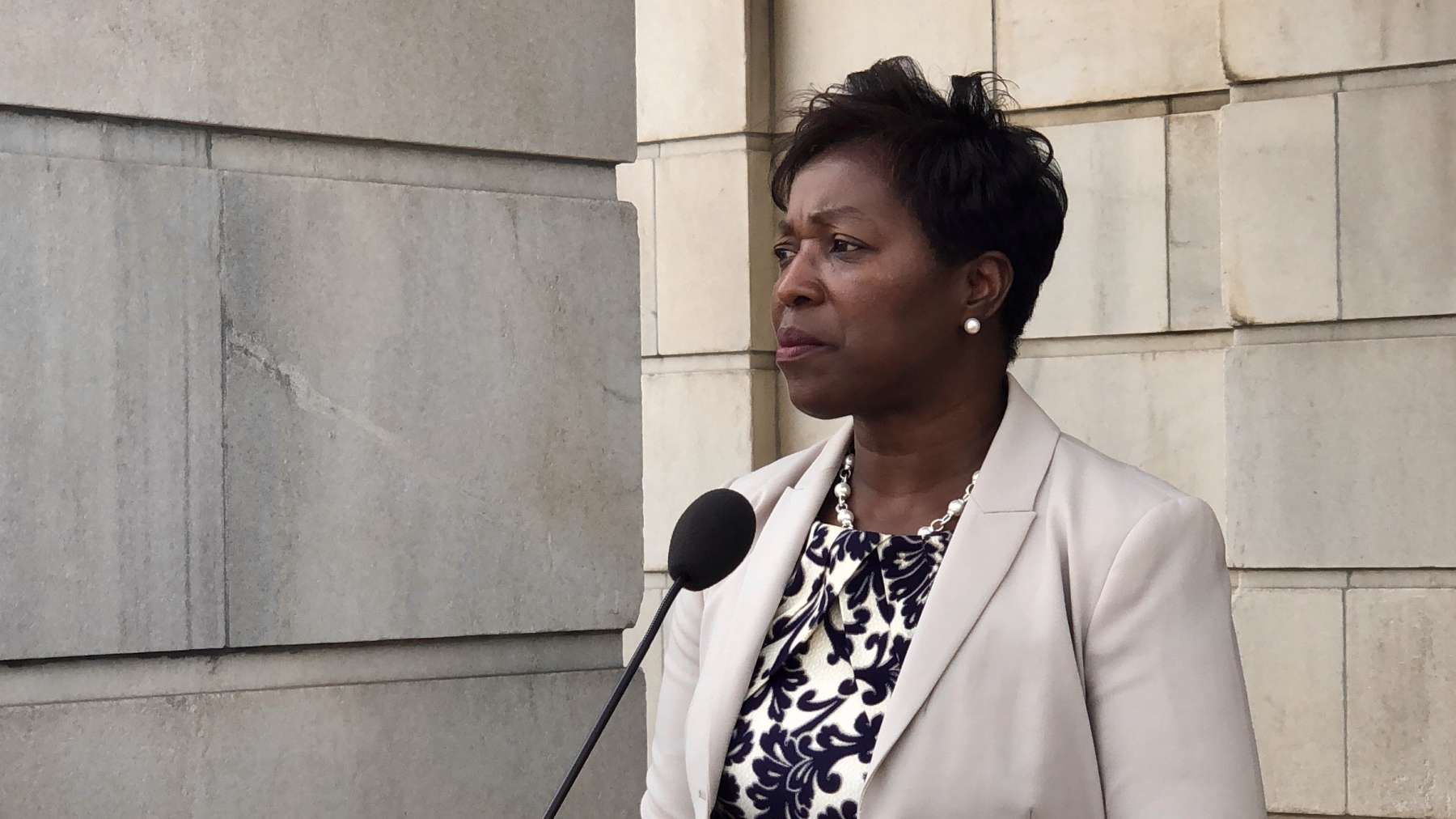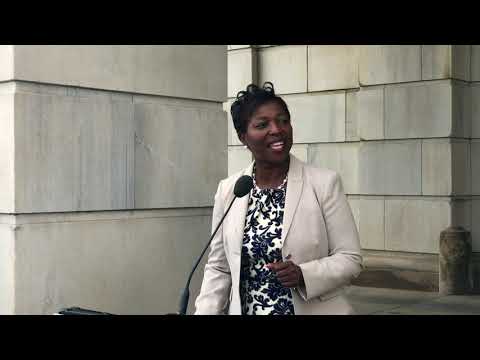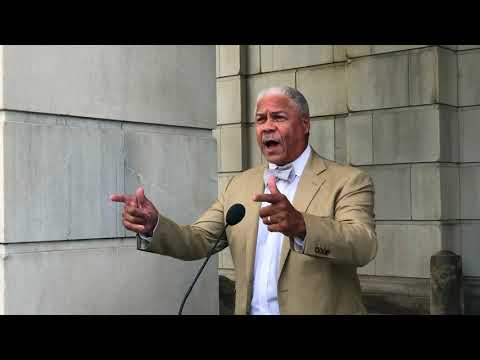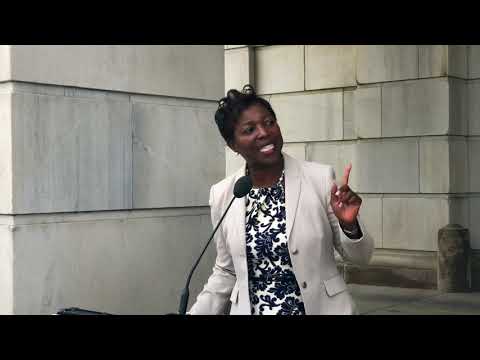RI Black Business Association issues state a failing grade after Disparity Report release
“Why did it take them this long [to release the Disparity Report],” asked RIBBA’s Executive Director Lisa Ranglin. “Are you just protecting your political interests? … Are you just protecting your desire to get to higher office?
July 29, 2021, 9:27 pm
By Steve Ahlquist
A study completed in November of last year but released to the public on Tuesday drew a harsh response from RIBBA, the Rhode Island Black Business Association on Thursday. The State of Rhode Island paid Mason Tillman Associates half a million dollars to conduct the Disparity Study, which finds evidence of discrimination against Black and women owned businesses by the state.
Under Rhode Island General Law 37-14.1, minority business enterprises (MBE) and women business enterprises (WBE) should be targeted for participation in all procurement and construction projects and shall be awarded a minimum of ten percent of all dollar value of the procurement or project. The Disparity Report found statistically significant disparities in the awarding of procurement and construction contracts.
“Why did it take them this long [to release the Disparity Report],” asked RIBBA’s Executive Director Lisa Ranglin. “Are you just protecting your political interests? … Are you just protecting your desire to get to higher office?
“The other thing I should note is that the people who did this study are nowhere around this year to answer questions… because they gave the report last year,” said Lisa Ranglin. “The State, when they shared the report recently, they did not take any questions. They actually disabled the chat feature.” Questions had to be submitted via email.
The National Bureau of Economic Research (NBER) working paper estimates that between February and April, the number of Black businesses nationally decreased by 41%, the largest change of any racial group included in the study. In contrast, the study estimates that the number of white businesses saw a 17% drop-in activity over the same period.
During the pandemic, former Rhode Island Governor Gina Raimondo suspended the MBE/WBE law. “$34 million was spent to build the makeshift hospital for COVID-19, zero dollars went to minority business enterprises and women business enterprises.”
A bill that would take away the Governor’s ability to waive the MBE/WBE law during emergency’s was passed by the General Assembly, but has yet to be signed by Governor Daniel McKee, said Lisa Ranglin.
In response the the Disparity Report RIBBA has complied a list of solutions:
- Establish a Contract Compliance office outside of government to monitor and enforce compliance to MBE commitments
- Mandate when a prime contractor fails to meet the goal of awarding 10% of the prime contract to a M/WBE, that prime contractor must submit good faith documentation indicating efforts to engage and hire minorities or women, a requirement existing as far back as 1996
- Investigate complaints of non-compliance and develop corrective action plans as needed
- Implementation of MBE/WBE tracking of comprehensive data on the subcontracts awarded by the prime contractors
- Increase the government procurement participation goal for Black and Latino contractors to reflect the increased minority population in RI
- The state must set up, and financially assist organizations that provide support to Black businesses so that they too can grow and thrive
- Issue an Executive order to establish preference in state contracts where Black and brown people are the predominant group to be served or when contracts are cited within a neighborhood where the population is 20% or more minority
- Commit at least 20% of funding to economic development in Black and brown communities
- Intentionally work with organizations led by Black and Latino leaders
- Increase loan funds available through Black and Latino organizations
- Establish clear lines of authority to the office of the Attorney General or other legal entity to ensure enforcement
- Implement a Pay Audit System to be used by Prime Vendors and their Subcontractors to independently report payments from Prime Vendors to the Subcontractors on state contracts.
At a press conference on the north steps of the Rhode Island State House, Lisa Ranglin minced no words. “Let me just say, big and bold, Rhode Island gets an F – you hear that correctly an F – total F – as it relates to complying to their own law…
“This law has been on the books since 1986 – and guess what? We just heard that they complied with that law twice – 2018 and 2019.”
Former State Senator Harold Metts sponsored the MBE legislation as a new member of the Rhode Island House of Representatives in 1986.
“You don’t know how frustrating it is for me – all this time has passed and still, very little progress has been made,” said Metts.
“The State of Rhode Island spent $500,000 to study something that we already knew,” said State Representative Marcia Ranglin-Vassell. “We knew there’s discrimination when it comes to engaging Black and brown and minority businesses. We didn’t need study to tell us that…”
“The reports have been done. The recommendations have been done. We know the specifics. We know what needs to be done – and it’s time for big, bold action,” said MaryAnn Matthews, Executive Director of the Multicultural Innovation Center. “It’s simply political will.”
“I stand accused, over the last 30 years in Rhode Island, of backing special interest groups and I am here to say that I am guilty as charged,” said Jim Vincent, President of the NAACP Providence Branch. “And those special interest groups are the Black and brown communities of Rhode Island.
“There needs to be an independent compliance office, with power to sign off on all procurement and vendor checks that go out [the State House] door.”
“We’re talking about economic equity and the opportunity to create wealth within our communities,” said Mark Fisher of Black Lives Matter. “And that starts with minority businesses and women businesses…”
When the MBE legislation passed, there was backlash, said Casby Harrison, an attorney with Harrison Law Associates. “That’s too much. That’s reverse discrimination. That is an assumption that it is even needed. And a national organization challenged the constitutionality of the state’s minority enterprise statute.” said Attorney Harrison. “They were suing the State of Rhode Island, saying this is unconstitutional, it’s hurting the majority community – it’s not fair – it’s not justified.”
Attorney Harrison was one of the attorneys that successfully defended the constitutionality of the law, but three years later the United States Supreme Court ruled that statistical proof of discrimination was needed to prove a need for such laws.
“So there was an economic disparity study conducted by the State of Rhode Island in the early 90s, and guess what it found?” asked Attorney Harrison. “It found the same thing that the economic disparity study we’re talking about today found.”
“This governor has a unique opportunity to right this wrong. He’s running for re-election. We need him to step up,” said Lisa Ranglin, returning to the mic. “We are absolutely sick and tired – sick and tired of crumbs.”
Governor Daniel McKee released the following statement:
“As the Governor said at his weekly press conference, he is fully committed to increasing diversity and minority business participation in the state procurement process and knows it will take an intentional strategy to do just that.
“Additionally, we expect to announce a new director of the Office of Diversity, Equity & Opportunity next week.
“The review of the disparity study, which includes spending data from Fiscal Year 2015 through Fiscal Year 2017 and was commissioned by the prior administration, remains ongoing.
“This work requires all stakeholders to have a voice, and that is why the Department of Administration and Office of Diversity, Equity and Opportunity (ODEO) hosted briefings on the study last week, with one specifically for stakeholders and another for all certified MBEs in Rhode Island. ODEO will continue to consult with and solicit feedback from stakeholders to determine what can be done to improve the MBE Program, make it more accessible for the MBE community, and increase the utilization rate.“




